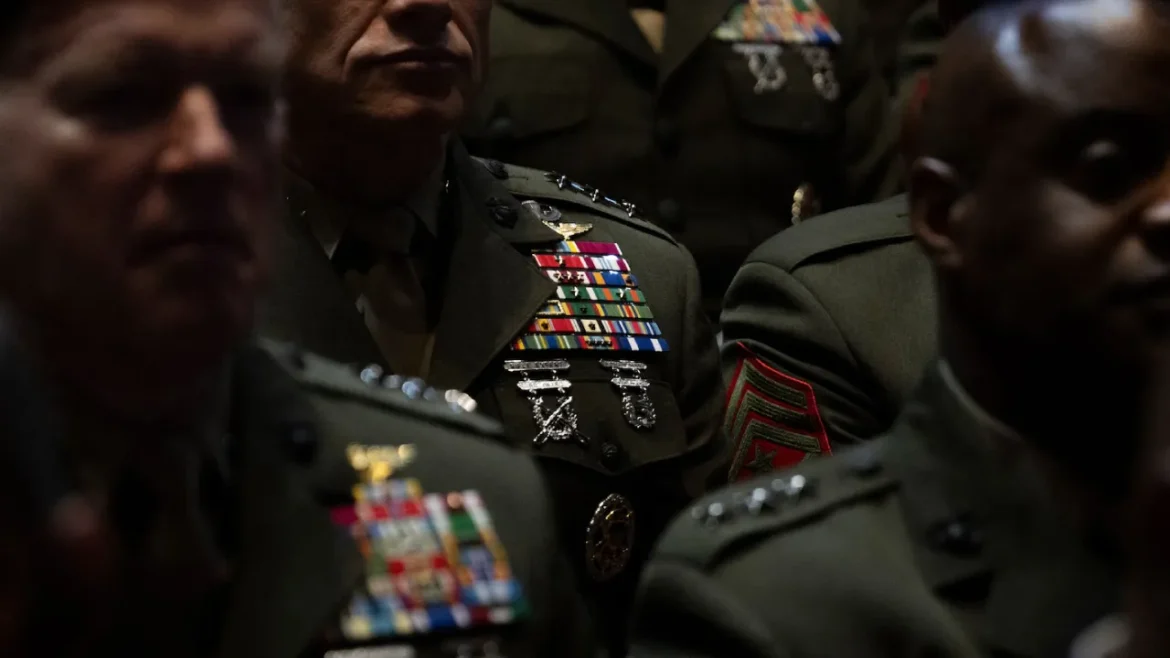Pentagon Moves to Curb Leaks with Sweeping Secrecy Measures
In a controversial new initiative, Defense Secretary Pete Hegseth has ordered the implementation of strict anti-leak measures across the U.S. Department of Defense (DoD), including mandatory nondisclosure agreements (NDAs) and random polygraph tests for thousands of Pentagon and military officials. The move, aimed at curbing unauthorized disclosures and internal dissent, has sparked significant concern among senior military leaders who warn the policy could undermine morale and erode institutional trust.
The directive, first circulated in an internal Pentagon memorandum earlier this month, outlines a plan to enforce tighter controls on information flow within the department. Officials with access to sensitive or classified information will be required to sign updated NDAs explicitly prohibiting “informal communication or disclosure of internal deliberations” to the media or unauthorized personnel.
In addition, the Defense Counterintelligence and Security Agency (DCSA) is expected to begin conducting random polygraph screenings, expanding a practice traditionally reserved for intelligence agencies and nuclear programs.
Push for Control Amid Rising Leak Incidents
Secretary Hegseth, a strong advocate of organizational discipline and loyalty, has defended the measures as “essential for protecting national security in an era of information warfare.” The move follows a string of high-profile leaks over the past two years, including internal assessments on U.S. defense readiness, Ukraine aid logistics, and classified war-gaming documents that surfaced on social media.
“Unauthorized disclosures don’t just breach trust—they endanger operations, allies, and the lives of service members,” Hegseth reportedly told senior staff during a closed briefing.
However, senior Pentagon officials and service chiefs have voiced unease about the scope and practicality of the crackdown. One senior officer, speaking anonymously, said, “We’re not an intelligence agency—we’re a military institution that depends on open communication and honest feedback. This could create a culture of fear.”
Feasibility and Morale Concerns
Critics argue the policy could prove logistically unmanageable, with more than 100,000 personnel potentially falling under the new rules. Polygraph testing alone, typically limited to high-clearance roles, could require billions in additional funding and extensive scheduling resources.
Moreover, the move risks creating a chilling effect across the defense community. “When people are afraid to speak up or share internal critiques, problems get buried instead of solved,” said a former Pentagon official who helped draft earlier internal communication guidelines.
Similar concerns have surfaced before. In 2010, the Obama administration’s crackdown on insider threats—known as the “Insider Threat Program”—faced comparable criticism for its perceived impact on whistleblower protections and internal transparency. Analysts suggest the Pentagon’s latest measures could reignite that same debate within both defense and political circles.
Analysis: Balancing Secrecy and Accountability
The Pentagon’s anti-leak initiative underscores a growing tension between security control and institutional openness in the digital age. As classified data breaches increasingly originate from within, the defense establishment faces mounting pressure to safeguard information while maintaining operational integrity.
Experts note that while the intent is to prevent damaging leaks, broad enforcement could alienate experienced personnel and complicate interagency collaboration, especially in joint operations involving intelligence sharing.
“Modern security depends as much on trust as it does on control,” said Dr. Michael Lawson, a national security scholar at the Center for Strategic Studies. “Overregulation risks paralyzing the flow of actionable information during crises.”
Internationally, the move also aligns with a wider trend: NATO allies and other defense ministries have recently introduced enhanced vetting protocols following major leaks, such as the 2023 Discord documents incident. Yet, none have adopted measures as sweeping or indiscriminate as those reportedly planned by the Pentagon.
The Road Ahead
The DoD has not disclosed when the new policy will take full effect, though officials expect initial implementation by early 2026. Congressional oversight committees are already signaling interest in reviewing the plan’s legal and ethical implications, particularly regarding privacy and whistleblower protections.
If fully enacted, the policy could reshape how the Pentagon manages internal communication and operational secrecy for decades to come. Whether it strengthens national security—or weakens the trust that sustains it—will depend on how far the Department goes in enforcing compliance.
Get real time update about this post category directly on your device, subscribe now.


7 comments
[…] D.C. — October 31, 2025:U.S. Defense Secretary Pete Hegseth announced Friday that the United States has signed a 10-year defense framework agreement with […]
[…] report said successive governments avoided setting a clear, long-term security policy. Instead leaders made ad hoc decisions that failed to address broader strategic needs, undermining […]
[…] military leadership is also watching Hezbollah in Lebanon for signs it might enter a broader confrontation alongside […]
[…] acquisition of the Orion-E comes as the country continues to address multiple internal security challenges, including insurgencies and border instability. Unmanned systems have become a key […]
[…] the Cloud One ecosystem, supporting classified and unclassified workloads and meeting Defense Department security and compliance […]
[…] centre construction, citing innovation parks and energy infrastructure as key elements. CoreWeave International’s leadership highlighted the significance of moving from AI strategy to operational […]
[…] European officials have long called for a stronger role within NATO decision making and command structures. While public reactions have been measured, the move is widely seen as a sign of increased trust in European military leadership. […]